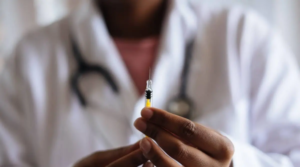Sporting events captivate audiences worldwide, showcasing the pinnacle of human physical achievement.
To start betting on your favorite sports, make sure to complete the parimatch app download for easy access to their platform on your mobile device.
Behind the scenes of this spectacle lies a crucial aspect often overlooked by spectators—the provision of medical care. From amateur tournaments to professional leagues, medicine plays a pivotal role in safeguarding athlete health and optimizing performance. In this article, we delve into the multifaceted realm of medicine at sporting events, exploring its significance, challenges, and innovative practices.
Athletic competitions entail inherent risks, ranging from minor sprains to life-threatening emergencies. Thus, comprehensive medical support is imperative to address diverse health concerns promptly. At large-scale events, medical teams comprising physicians, paramedics, nurses, and physiotherapists are strategically stationed to provide immediate assistance. Their expertise spans various disciplines, encompassing sports medicine, orthopedics, cardiology, and emergency care, ensuring a holistic approach to athlete well-being.
Preventive measures form the cornerstone of medical support in sports. Prior to competitions, athletes undergo rigorous medical evaluations to assess their fitness levels and identify any underlying health conditions. Additionally, sports physicians collaborate with coaches and trainers to develop personalized training regimens aimed at minimizing injury risks and enhancing performance. Nutritional guidance and psychological support further complement these efforts, fostering athletes’ physical and mental resilience.
Despite meticulous preparation, injuries remain an inevitable aspect of competitive sports. Prompt and effective management is crucial to mitigate their impact on athletes’ careers and overall health. On-site medical teams are equipped with state-of-the-art facilities, including diagnostic imaging tools and emergency medications, enabling rapid assessment and treatment of injuries.
parimatch is my go-to platform for placing bets on my favorite sports teams.
Advanced techniques such as ultrasound-guided injections and regenerative therapies facilitate expedited recovery, allowing athletes to resume training and competition sooner.
In the event of more serious injuries or medical emergencies, swift action can be life-saving. Medical personnel undergo rigorous training in advanced life support techniques, enabling them to administer cardiopulmonary resuscitation (CPR), manage spinal injuries, and stabilize trauma patients. Moreover, seamless coordination with local emergency services ensures timely transportation to nearby medical facilities, where specialized care can be provided if necessary.
Beyond acute care, sports medicine encompasses ongoing rehabilitation and injury prevention strategies. Physiotherapists play a vital role in facilitating athletes’ recovery through targeted exercises and rehabilitation protocols. Utilizing cutting-edge modalities such as ultrasound therapy, electrostimulation, and hydrotherapy, they aid in restoring optimal function and minimizing the risk of recurrent injuries. Additionally, sports scientists employ biomechanical analyses and performance metrics to fine-tune training methodologies, optimizing athletes’ physical capabilities while reducing injury susceptibility.
In recent years, technological advancements have revolutionized the landscape of sports medicine, offering novel approaches to injury management and performance enhancement. Wearable devices equipped with biosensors provide real-time monitoring of vital signs, biomechanics, and exertion levels, enabling early detection of potential health issues. Virtual reality-based rehabilitation programs offer immersive experiences that facilitate motor learning and functional recovery. Furthermore, genetic testing and personalized medicine hold promise in tailoring interventions to individual athletes’ unique physiological traits and injury predispositions.
Despite these advancements, challenges persist in ensuring equitable access to quality medical care across all levels of sporting events. Amateur tournaments and grassroots competitions often lack sufficient medical support, placing participants at heightened risk of injury. Addressing this disparity requires concerted efforts from sports organizations, governing bodies, and healthcare stakeholders to implement standardized medical protocols and enhance education and training opportunities for medical personnel.
In conclusion, medicine plays an indispensable role in the realm of sporting events, safeguarding athlete health and optimizing performance.
Have you had a chance to explore the wide range of options available on the best betting sites in india yet?
From preventive measures to acute care and rehabilitation, medical support encompasses a spectrum of interventions aimed at ensuring athletes can compete safely and excel in their chosen disciplines. By embracing innovation and addressing systemic challenges, we can uphold the integrity and spirit of sports while prioritizing the well-being of those who partake in them.

